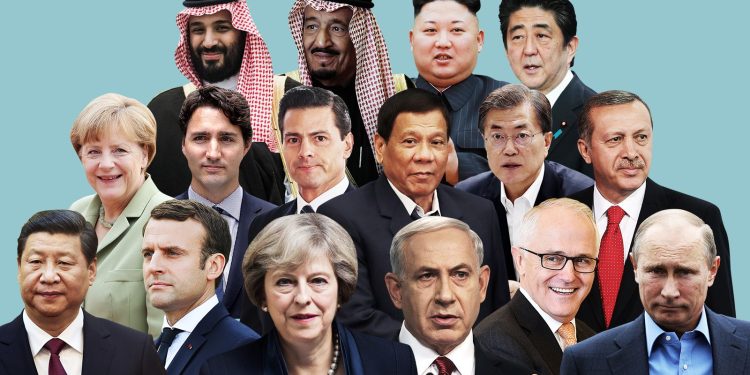By Kashif javed
Global politics is in turmoil, yet, as always, we stand as mere spectators. The United States is experiencing internal upheaval, NATO is weakening, and the alliance between China and Russia is turning into a nightmare for the West. Meanwhile, we remain preoccupied with questions as basic as how to make bread more affordable. The world powers have already set the chessboard, but we are still unable to decide where we should position ourselves.
The return of Donald Trump is no ordinary event—it poses significant questions for the United States, NATO, and the entire world. Trump sees NATO as a burden, dismisses the United Nations as ineffective, and holds views on China and Russia that could reshape global politics in the coming days. The critical question is: Is the United States retreating from its global leadership? If so, who will fill the vacuum left behind?
The growing alliance between Russia and China is an alarming development for the West. The Ukraine war has reached a decisive phase, and if the U.S. withdraws its support from NATO, the fate of Ukraine will hang in the balance. This would be a golden opportunity for Russia. NATO is already struggling, and if the U.S. further weakens the alliance, European nations will be left in a state of panic. The time has come for every country to take responsibility for its own security.
Europe’s greatest fear is the potential disintegration of NATO—if the alliance collapses, what options will European nations have? This is not the first time history has witnessed a power vacuum; such voids have always paved the way for the rise of new powers. The world saw the consequences of the appeasement policy towards Hitler. If NATO weakens today, the outcome will be no different.
If the United States engages in hostilities with both China and Russia simultaneously, it risks meeting the same fate as Napoleon, who brought about his own downfall by invading Russia. Karl Marx famously stated that the economy is the foundation of politics—whoever controls the economy controls the world. If China and Russia consolidate their economic and political influence, the United States will find itself in a new Cold War, transforming the world as we know it.
The reconciliation between Saudi Arabia and Iran is a clear indicator that global power dynamics are shifting from the West to the East. Previously, the United States and its allies dominated the Middle East, but now, power centers are changing. If Saudi Arabia and Iran manage to overcome their historical rivalries, it could mark the beginning of a new era for the region.
For Pakistan, the most pressing challenge is determining its geopolitical stance. A neutral policy may seem like a reasonable strategy, but can we truly afford to remain neutral? Our economy is already in shambles, debt is mounting, and our diplomatic engagement is lackluster. If we fail to navigate these geopolitical shifts wisely, we risk becoming isolated on the global stage. The outcome of the Ukraine war remains uncertain, but history teaches us that prolonged conflicts often lead to unpredictable consequences. Napoleon’s invasion of Russia proved disastrous, Hitler made the same mistake, and now Russia finds itself entangled in Ukraine. If this war drags on, the world must brace for another global crisis.
NATO’s future now depends less on the United States and more on Europe. If European nations strengthen their defense capabilities, NATO may survive; otherwise, it could become a mere relic of the past. The world is at a turning point—geopolitical blocs are being redefined. The U.S. is retreating, China and Russia are advancing, Europe is anxious, the Middle East is transforming, and Pakistan remains in a state of uncertainty. The question is: Will we emerge as a significant force in this changing world, or will we remain an irrelevant nation on the sidelines?













